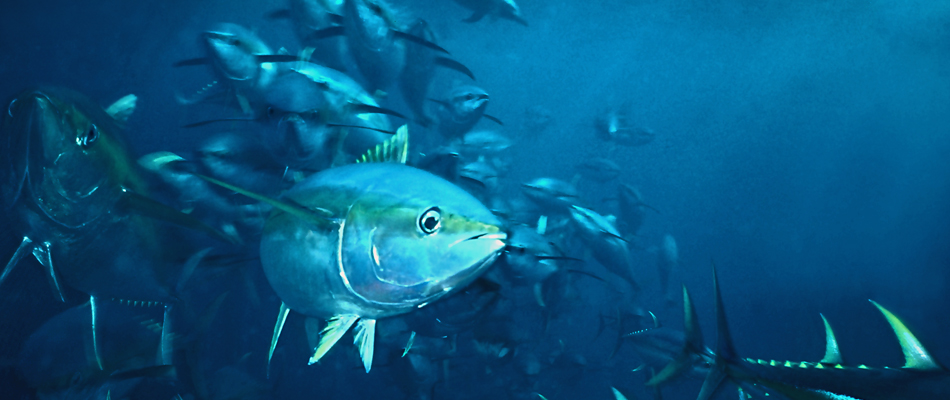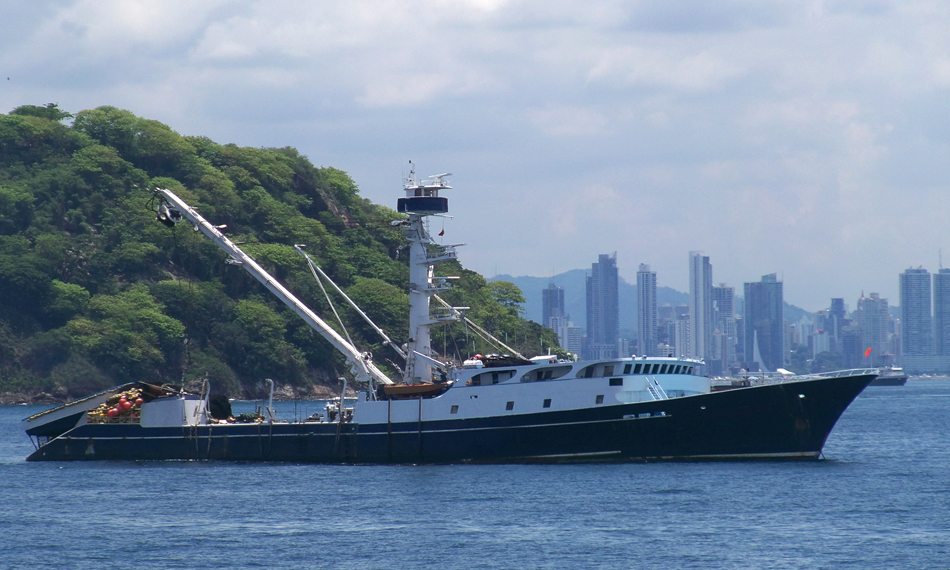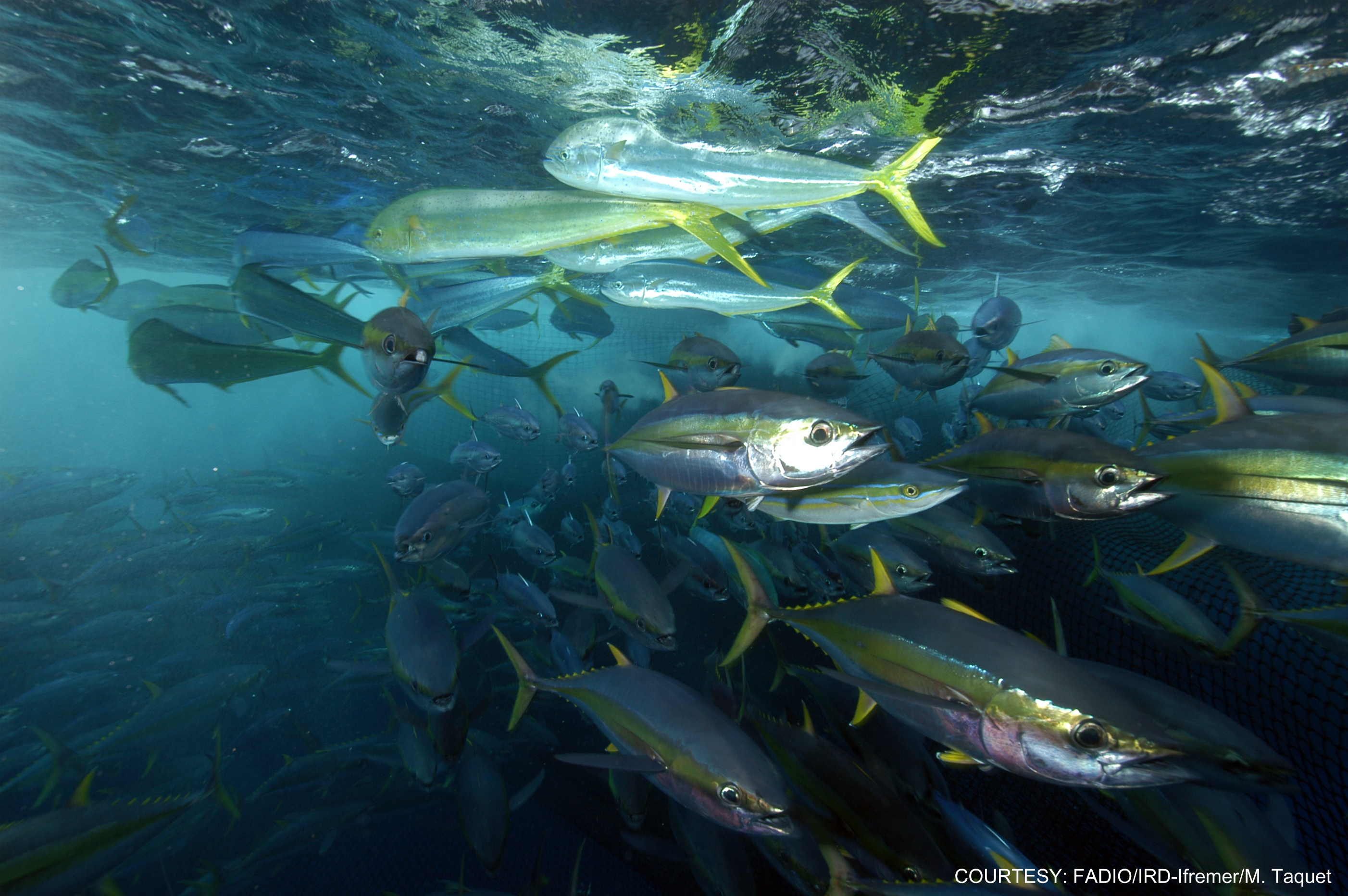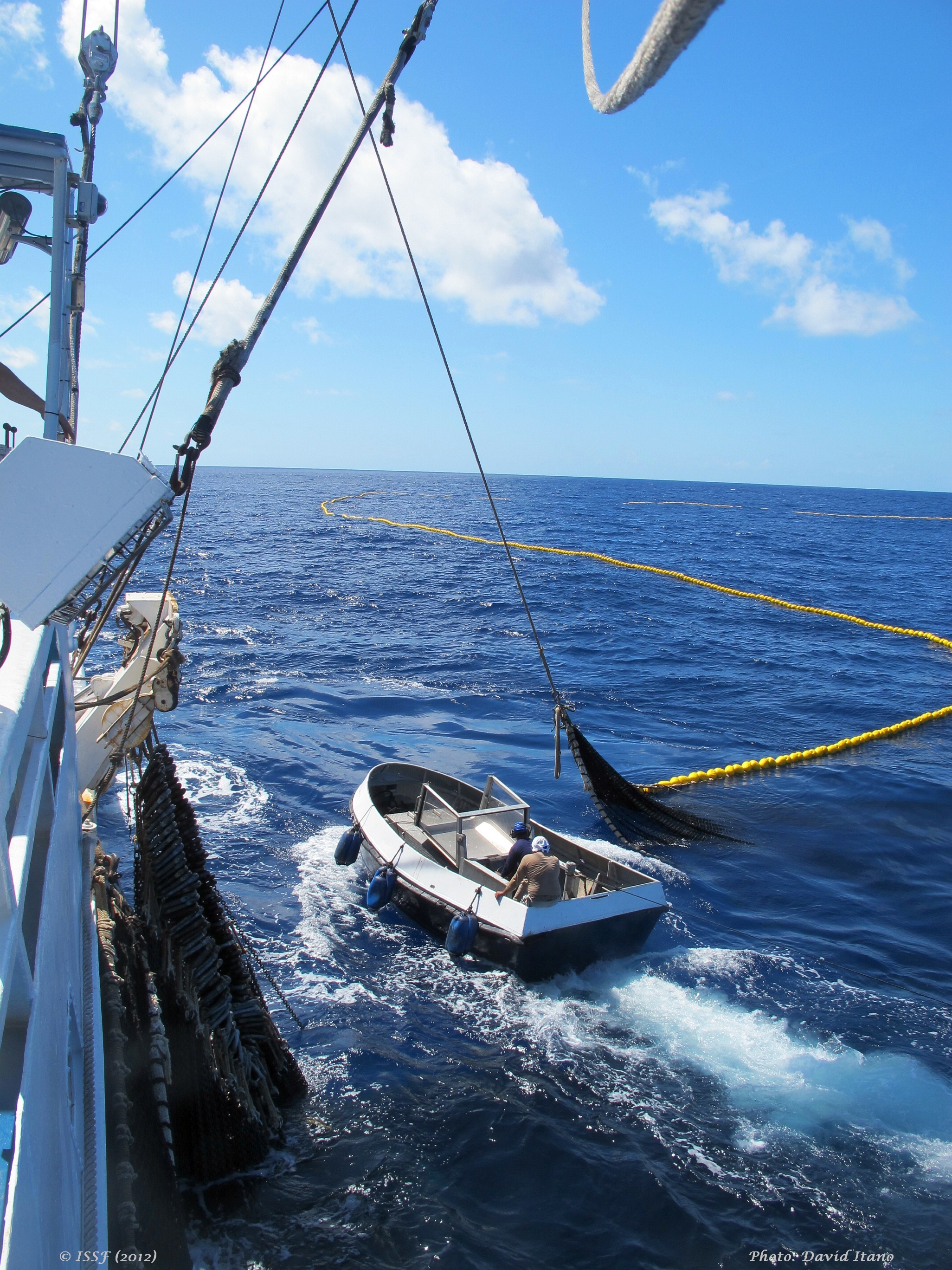The International Seafood Sustainability Foundation (ISSF) today announced updates to several ISSF conservation measures (CM) to facilitate continuous improvements in the sustainability of global tuna fisheries, including those measures that impact longline tuna vessels and the use of fish aggregating devices (FADs).
“ISSF is guiding seafood companies and tuna fishers — with an expanded focus on longline fisheries — in taking additional, scientifically researched steps to protect sharks and other marine species, including through accessible education on up-to-date bycatch-mitigation best practices for skippers,” explains ISSF President Susan Jackson. “We also are furthering requirements for tuna fishers that use FADs to have clear policies for better managing and recovering them — and to use non-entangling, natural materials in FADs to reduce fishing’s impact on the ocean ecosystem.”
These latest conservation measure amendments aim to:
- Increase protections for vulnerable sharks, sea turtles, and seabirds and other non-target species in tuna fisheries
- Reduce fishing gear debris in and harm to marine environments
- Expand how bycatch-mitigation information is shared with fishers
The full text of all measures is published on the ISSF site and excerpted as an editor’s note below.
Shark Finning Prevention: Requirement to Land Sharks with Fins Naturally Attached
Sharks can be caught incidentally in tuna fishing operations, with shark bycatch a significant sustainability concern in longline fisheries. But sharks often are intentionally targeted by vessels for the value of their fins in certain markets.
Shark finning — the practice of retaining shark fins onboard and discarding the remaining carcasses at sea — threatens shark populations and violates the U.N. FAO Code of Conduct for Responsible Fisheries and its International Plan of Action for the Conservation and Management of Sharks.
ISSF is strengthening its existing shark-finning measures 3.1 (a) – Shark Finning Policy, 3.1(b) – Prohibition of Transactions with Shark-Finning Vessels, and 3.1(c) – Prohibition of Transactions with Companies without a Public Policy Prohibiting Shark Finning, by requiring seafood companies by December 31, 2022, to enact policies requiring all retained, incidentally caught sharks to be landed with their fins still naturally attached. In addition to decreasing shark finning, such policies will help to improve data collection, species identification, and monitoring and enforcement.
Bycatch Prevention: Marine Species in Longline Tuna Fisheries
Since its inception, ISSF has dedicated resources and efforts to understanding bycatch issues in global tuna fisheries and minimizing bycatch. ISSF has expanded a bycatch-mitigation measure — CM 3.6 – Transactions with Vessels Implementing Best Practices for Sharks, Sea Turtles and Seabirds — effective December 21, 2022, to reflect current on-the-water best practices in longline tuna fisheries.
Bycatch Mitigation: Best-Practices Education for Longline Skippers
To continue disseminating best-practices information on bycatch prevention and mitigation, ISSF will extend its fisher education requirements, as detailed in amended CM 3.4 – Skipper Best Practices, to longline skippers effective December 31, 2022.
Marine Ecosystem Protections: FAD Management and Biodegradable FAD Designs
ISSF strengthens its requirements for better FAD management in CM 3.7 – Transactions with Vessels or Companies with Vessel-based FAD Management Policies — an important component for meeting the Marine Stewardship Council (MSC) certification fisheries standard without conditions — including FAD recovery and FAD designs made with biodegradable and non-entangling materials to minimize fishing’s impact on the marine ecosystem.
Bycatch Prevention: Driftnet Prohibition
Large-scale pelagic driftnets are an unselective method of fishing that results in substantial unintentional catches of many non-target marine species. ISSF has expanded the geographic scope of its measure — CM 3.2 – Large-Scale Pelagic Driftnets Prohibition — on this issue.
About ISSF Conservation Measures & Compliance Process
Since its inception in 2009, ISSF has adopted conservation measures and commitments to facilitate its mission with the intent that processors, traders, marketers and others involved in the seafood industry will follow them to facilitate real and continuous improvement across global tuna stocks. Each ISSF participating company commits to conform to these conservation measures to improve the long-term health of tuna fisheries. They also must adhere to the ISSA Compliance Policy.
ISSF participating tuna companies, which represent the majority of the world’s canned-tuna production and include well-known brand names, are audited yearly by MRAG Americas on their compliance with ISSF conservation measures.
ISSF recently released its ISSF Annual Conservation Measures & Commitments Compliance Report, which ISSF published in coordination with its recent annual report Staying the Course. In addition to a summary report, MRAG Americas issues individual company reports that detail each organization’s compliance with ISSF’s conservation measures. ISSF publishes these individual company compliance reports on its website.
NOTES TO EDITOR:
Updated ISSF Conservation Measures: Excerpted Amended Text in Bold
ISSF Conservation Measure 3.1 (a) – Shark Finning Policy
All ISSF Participating Companies shall establish and publish policies prohibiting shark finning and requiring sharks be landed with fins naturally attached, if retained.
ISSF Conservation Measure 3.1(b) – Prohibition of Transactions with Shark-Finning Vessels
Processors, traders, importers, transporters and others involved in the seafood industry shall not conduct transactions with vessels that carry out shark finning and/or do not land all sharks with fins naturally attached, if retained.
ISSF Conservation Measure 3.1(c) – Prohibition of Transactions with Companies without a Public Policy Prohibiting Shark Finning
Processors, traders, importers, transporters, marketers and others involved in the seafood industry shall not conduct transactions with companies that do not have a public policy prohibiting shark finning and requiring sharks be landed with fins naturally attached, if retained.
ISSF Conservation Measure 3.6 – Transactions with Vessels Implementing Best Practices for Sharks, Sea Turtles and Seabirds
Processors, traders, importers, marketers and others involved in the seafood industry shall conduct transactions only with those longline vessels whose owners have a policy requiring the implementation of the following best practices for sharks, seabirds and marine turtles:
(a) the use of circle hooks and only monofilament lines (e.g., the use of wire trace is prohibited); and
(b) the use of whole finfish bait
(c) implementation by the crew of best practice handling techniques for sharks, seabirds and marine turtles such as those outlined in the ISSF Skippers’ Guidebook to Sustainable Longline Fishing Practices; and
(d) No use of “shark lines” at any time.
ISSF Conservation Measure 3.4 – Skipper Best Practices
Processors, traders, importers, transporters, marketers and others involved in the seafood industry shall conduct transactions only with those purse seine and longline vessels whose skippers:
(a) have attended an in-person and/or online ISSF Skippers Workshop; or
(b) have attended an in-person Skippers Workshop provided by a tuna FIP and conducted by a trainer that has been accredited by ISSF to conduct these workshops; or
(c) have viewed an ISSF Skippers Workshop video online; or
(d) have reviewed the online ISSF Skippers Guidebook.
All of the above provide information on best practices for purse seine and longline fishery management.
ISSF Conservation Measure 3.7 – Transactions with Vessels or Companies with Vessel-based FAD Management Policies
To further support the implementation of existing RFMO conservation measures and recommendations for FAD data collection and reporting and the use of non-entangling FAD designs that do not use any netting in any components, including both the raft and the tail, and the use of biodegradable FAD designs that are also fully non-entangling, and to promote the development and implementation of FAD recovery policies, strategies to mitigate shark bycatch in purse seine tuna fisheries and the voluntary provision of FAD buoy data to strengthen FAD management:
- Processors, traders, importers, transporters, marketers and others involved in the seafood industry shall conduct transactions only with those purse seine vessels whose owners develop and make public FAD Management Policies that include the activities purse seine and supply vessels are undertaking (if any) on the following elements: (a) Comply with flag state and RFMO reporting requirements for fisheries statistics by set type; (b) Voluntarily report additional FAD buoy data for use by RFMO science bodies; (c) Support science-based limits on the overall number of FADs used per vessel and/or FAD sets made; (d) Use only non-entangling FADs to reduce ghost fishing; (e) Mitigate other environmental impacts due to FAD loss including through the use of biodegradable FADs and FAD recovery policies; (f) For silky sharks (the main bycatch issue in FAD sets) implement further mitigation efforts.
- In developing a FAD Management Policy, purse seine vessels and purse seine vessel owning companies should refer to ISSF Technical Paper 2019-11 (or any subsequent revision) in designing the activities for each element
- With respect to the element on mitigating other environmental impacts due to FAD loss (item e above), by 1 January 2023, public FAD Management Policies developed under this measure shall include a statement that purse seine vessels and supply vessels covered by the policy are participating in trial(s) of biodegradable FAD designs and/or FAD recovery programs that include the participation of the relevant RFMO science bodies and/or coastal States, national scientists, and/or ISSF scientists to monitor experimental design.
- With respect to the element on the use of only non-entangling FADs (item d above), by 1 January 2024, public FAD management policies developed under this measure shall include a statement that purse seine vessels and supply vessels covered by the policy will from this date only use and deploy fully non-entangling FADs, without any netting in any components, including both the raft and the tail.
- ISSF CM 3.5 is repealed and replaced by this measure as of 1 January 2024.
ISSF Conservation Measure 3.2 – Large-Scale Pelagic Driftnets Prohibition
ISSF supports the Resolutions of the United Nations General Assembly concerning large-scale pelagic driftnet fishing and its impact on the living marine resources of the world’s oceans and seas, including enclosed and semi-enclosed seas.
Processors, traders, importers, transporters, marketers and others involved in the seafood industry shall refrain from transactions in tuna caught by large-scale pelagic driftnets regardless of the geographic area in which the tuna were caught by such driftnets.





